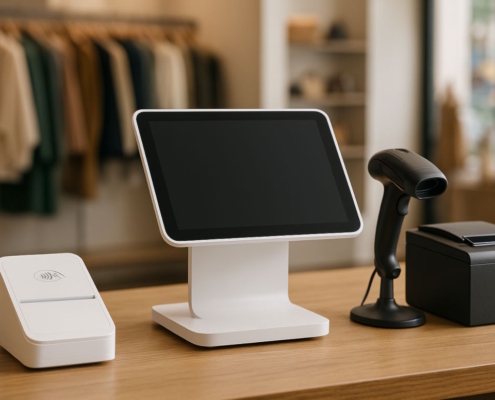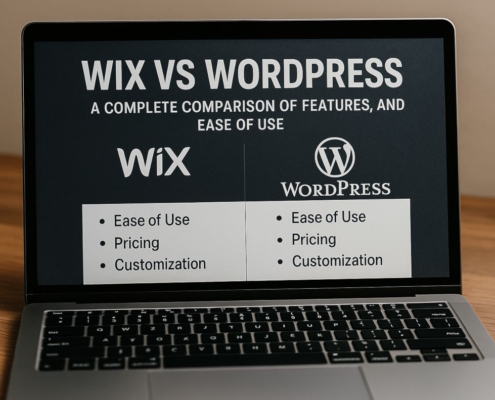Comparison between power of attorney and durable power of attorney
You can delegate authority to another person to manage your money or health care, among other things, using a power of attorney (POA). The term “durable power of attorney” refers to a document that continues to be valid even after you lose mental competence due to things like surgery or an accident. To prepare for unexpected medical expenses or a deterioration in mental capacity, a durable power of attorney might be helpful. If these papers are in place, family members will not have to worry about handling money or making complicated health decisions on your behalf.
To delegate control of your financial, health, and legal matters to another party, you can create a power of attorney. While limited powers of attorney are situationally specific, general powers of attorney are applicable to a broad variety of transactions. There are two types of powers of attorney: ordinary and durable.
1. Power of attorney
Unless otherwise specified in the POA instrument, or upon your mental incompetence, an ordinary power of attorney will expire. The main reason for using it is to make business deals faster and more convenient.
An ordinary power of attorney (POA) allows you to name another person to act on your behalf in specific financial transactions or document signings. If you’re going to be out of the country for a long period, a power of attorney can let someone else take care of your accounts, sign closing papers, or even register your new car.
2. Durable power of attorney
Just like a standard power of attorney, a durable power of attorney appoints an agent to manage your money and legal affairs in the event that you become unable to do so due to illness or injury. Making preparations for times when you may not be able to make decisions for yourself, such as in the event of a medical emergency or gradual loss of mental capacity, is the purpose of a durable power of attorney (POA).
Two distinct kinds of durable power of attorney are typically included in legal agreements; one deals with financial issues and the other with medical matters. In addition to a will and testament, most estate plans contain a durable power of attorney.
What does a general durable power of attorney do?
Even in the event of your incapacity, a general durable power of attorney grants another person the authority to act on your behalf in certain legal and economic concerns. This legal arrangement is formally known as a financial durable power of attorney. A power of attorney (POA) might be effective either immediately or upon your incapacity. Your power of attorney (POA) does not require you to make use of it immediately; you are free to keep managing your own money as you have in the past.
A power of attorney (POA) designates a third party to act on your behalf; this third party need not be an attorney to serve in this capacity. The following are just a few examples of the numerous types of transactions that an attorney may do on your behalf:
- The purchase and sale of real estate and other assets
- Keeping track of money, accounts, and assets
- Sending in tax forms
- Seeking financial assistance from the state
A general durable power of attorney (POA) enables the agent you’ve chosen to immediately take over your financial affairs in the event that you become incapacitated due to an accident, sickness, or deterioration in mental capacity with age. Your loved ones may need to petition the court to declare you legally incapable of managing your financial affairs if you do not have a broad durable power of attorney.
The following are necessary for a general power of attorney:
- Make a decision on the type of power of attorney you wish to establish. Make only commercial, financial, and medical decisions, or offer broad control over your whole life.
- Make your agent choice. Pick anyone who is at least 18 years old. Still, your agent can’t be your doctor or nurse. When choosing an agent, go for someone you can trust, someone who is loyal, intelligent, experienced, and close to where you are.
- Choose the level of responsibility to assign. To what extent do you wish to delegate authority to your agent in the areas of money, health, and management? If you want someone to be able to manage your money or real estate but not make medical decisions on your behalf, you may include that in a power of attorney.
- Make a paper outlining the power of attorney. When drafting a power of attorney, it’s wise to consult an attorney who specializes in this area to make sure the agent you choose can carry out your instructions and that the authority’s scope matches your intentions.
- Deliver the papers granting power of attorney. A signed copy must be sent to the agent of your choice, as well as to any healthcare professionals in the case of medical matters or financial institutions in the case of financial matters.
Healthcare durable power of attorney
In the event that you become unresponsive or in some way unable to communicate your healthcare decisions due to a medical emergency, a durable healthcare power of attorney can be of great assistance. It designates a trusted relative or friend as your health care agent, allowing them to speak for you with physicians and make treatment decisions. If you have a medical durable power of attorney, your loved ones will have an easier time coordinating your treatment with your doctors and hospitals.
A living will specifies your wishes for end-of-life medical care, whereas a medical durable power of attorney specifies your wishes for ongoing care. No matter how good your prognosis is for a full recovery, a health care power of attorney lets your agent make decisions on your behalf whenever you cannot.
Performing the duties of an attorney
It is important to have a certified copy of the power of attorney form on hand whenever you interact with healthcare professionals or do business on behalf of another person. Use your own name and the words “power of attorney” to sign legal documents in your role as agent. Before you sign, make sure you know the chosen format.
Living will
An advance directive, or living will, lays out your last healthcare preferences. It focuses on therapies that might potentially extend life expectancy for those who are terminally sick or who are chronically unconscious and do not have any chance of recovery. If you are unable to express your desires verbally, then a living will becomes significant.
With a living will in place, family members and medical professionals may more easily decide how to treat a patient. It saves your loved ones the trouble of trying to guess your wishes. There is a common living will form in most states.
Creating and revoking durable power of attorney documents
Making a durable POA is as easy as filling out an online POA form. Notarization or witnessing by an official in your state may be required in addition to the signature. To get advice on power of attorney (POA) and other estate planning instruments that are suitable for your circumstances, it is useful to consult an attorney regarding your needs.
To act as your agent, you might name a trusted friend, adult child, or family member. A general power of attorney grants your agent extensive financial authority, so be sure to pick someone you trust implicitly. Your financial power of attorney (POA) and your medical power of attorney (POA) need not be the same individual. In case your preferred agent is unavailable, you have the option to select a backup. Before you sign a durable power of attorney, be sure they are ready to handle the duty.
If you are of sound mind, you can withdraw a durable power of attorney at any moment. This is best done in writing. Contacting banks and other companies your agent has done business with is also a good idea. When the grantor of a durable power of attorney dies, the power of attorney immediately expires.
More complicated is the subject of who has the power to take back a loved one’s power of attorney. It is possible to seek legal recourse in order to remove an individual from their power of attorney position if you suspect they are abusing their authority. For assistance, see a lawyer who specializes in estate planning and elder law.
FAQs
1. What does it mean to have a durable power of attorney?
Your power of attorney (POA) remains in effect even after you lose mental capacity; it grant another individual the legal ability to act on your behalf. Depending on the specifics of your financial power of attorney, your agent may be able to handle things like making payments, purchasing and selling property, and managing your assets. If you have a durable power of attorney (POA) for medical care, your agent can speak with your physicians and make choices about your treatment in the event that you become disabled and are unable to.
2. What does the legal phrase “durable” mean?
A power of attorney is considered “durable” if it remains in force even in the event of your incapacity.
3. Which power of attorney document is best?
Consider your needs carefully before deciding on a power of attorney form. If you’re planning to be out of town quite a bit or only want a power of attorney to facilitate temporary business transactions, an ordinary power of attorney might be all you need. However, a durable power of attorney (POA) is a good idea if you’re thinking about a day when you might not be able to handle your own affairs or decide on your own healthcare. The ideal power of attorney paperwork can be tailor-made with the help of an estate planning attorney.































